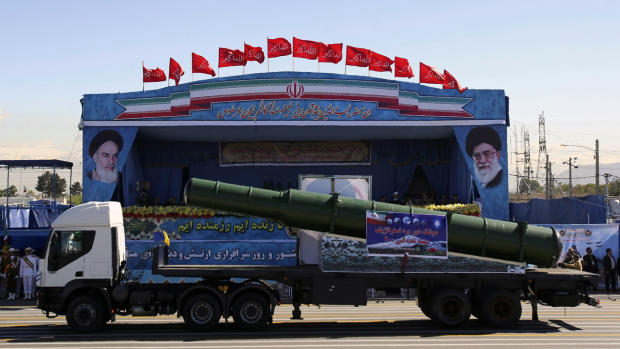Iran tests missile capable of reaching Israel
TEHRAN, Iran -- Iran test-fired another ballistic missile, the latest in a spate of tests following the implementation of the nuclear deal with world powers earlier this year, according to a report Monday by the country's semi-official Tasnim news agency.
The test-firing of the missile was carried out two weeks ago, the agency quoted Gen. Ali Abdollahi, deputy chief of the armed forces' headquarters, as saying. Tasnim is close to the country's powerful Revolutionary Guard, which is in charge of Iranian ballistic missiles program.
The agency said the missile has a range of 1,250 miles - enough to reach much of the Middle East. Iranian military commanders have described them as a strategic asset and a strong deterrent, capable of hitting U.S. bases or Israel in the event of a strike on Iran.
Iran insists the ballistic tests do not violate the nuclear deal and is likely seeking to demonstrate it is making progress with its ballistic program, despite scaling back on the nuclear program following the deal that led to the lifting of international sanction on Tehran.
Abdollahi said the latest missile tested is very accurate, within 8 meters (yards). "Eight meters means nothing, it means it's without any error," he said. He did not elaborate.
Last month, Gen. Amir Ali Hajizadeh, chief of the Guard's airspace division, said a new, upgraded version of the Sajjil - a solid fuel high-speed missile with a range of 1,200 miles that was first tested in 2008 - would soon be ready.
But it was not immediately clear if the missile Abdollahi referred to was the new Sajjil.
In March, Iran test-fired two ballistic missiles - one emblazoned with the phrase "Israel must be wiped out" in Hebrew - that set off an international outcry.
The landmark deal does not include provisions against missile launches and when it came into effect on Jan. 16, the Security Council lifted most U.N. sanctions against Tehran, including a ban it had imposed in 2010 on Iran testing missiles capable of carrying nuclear warheads.
To deal with the restrictions in the nuclear agreement, the council adopted a resolution last July, which only "calls on" Iran not to carry out such tests.
